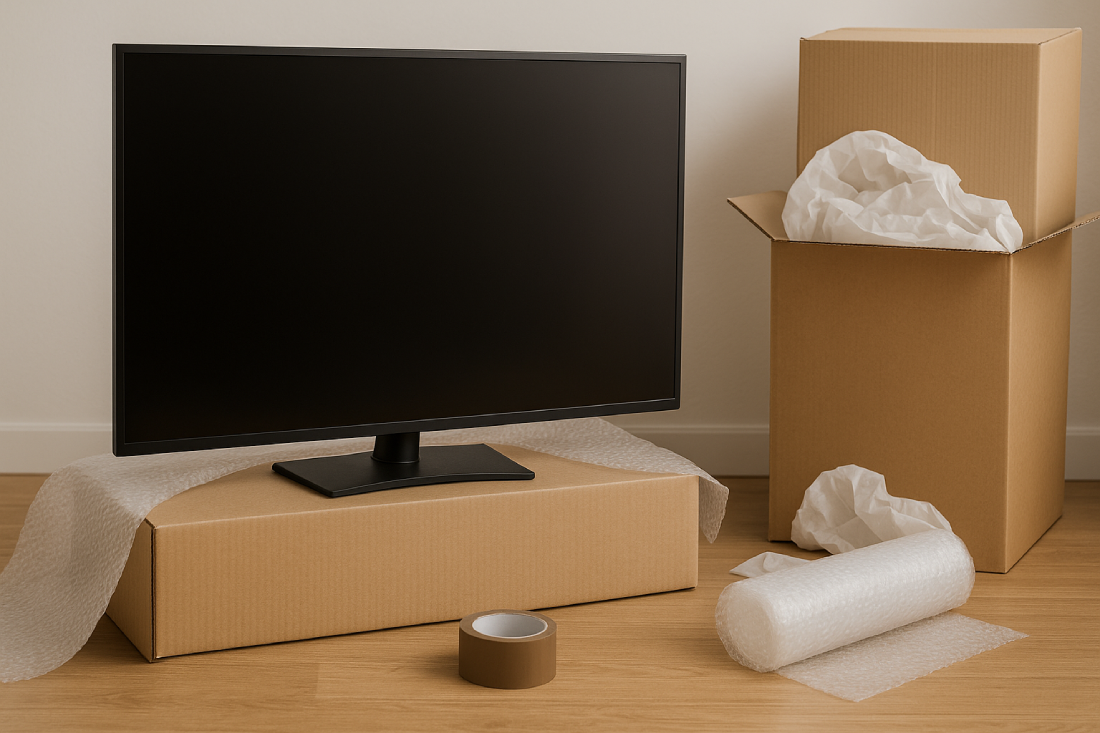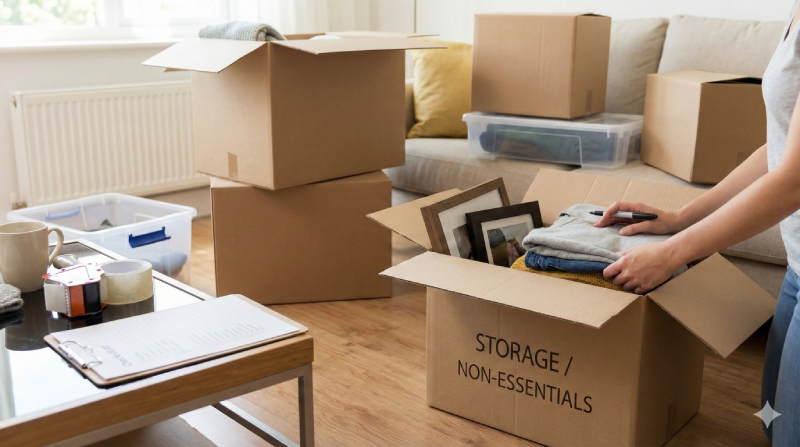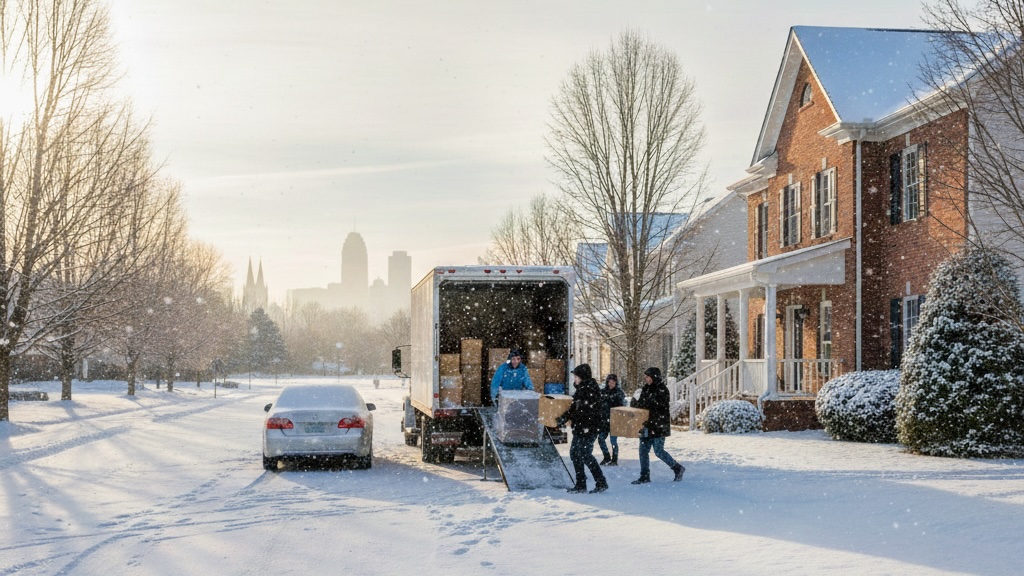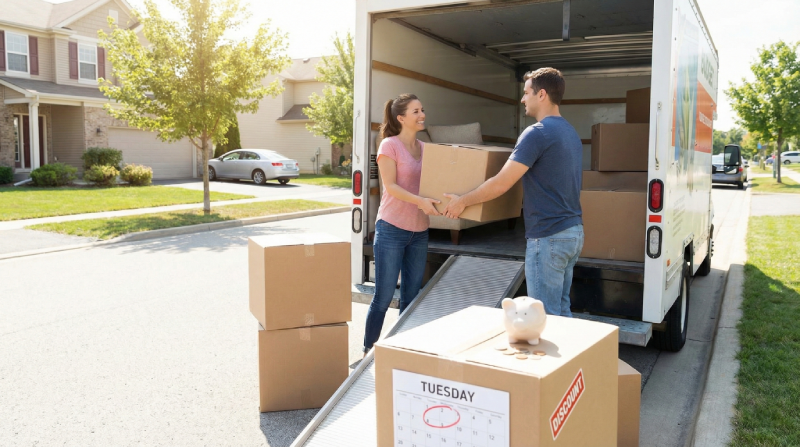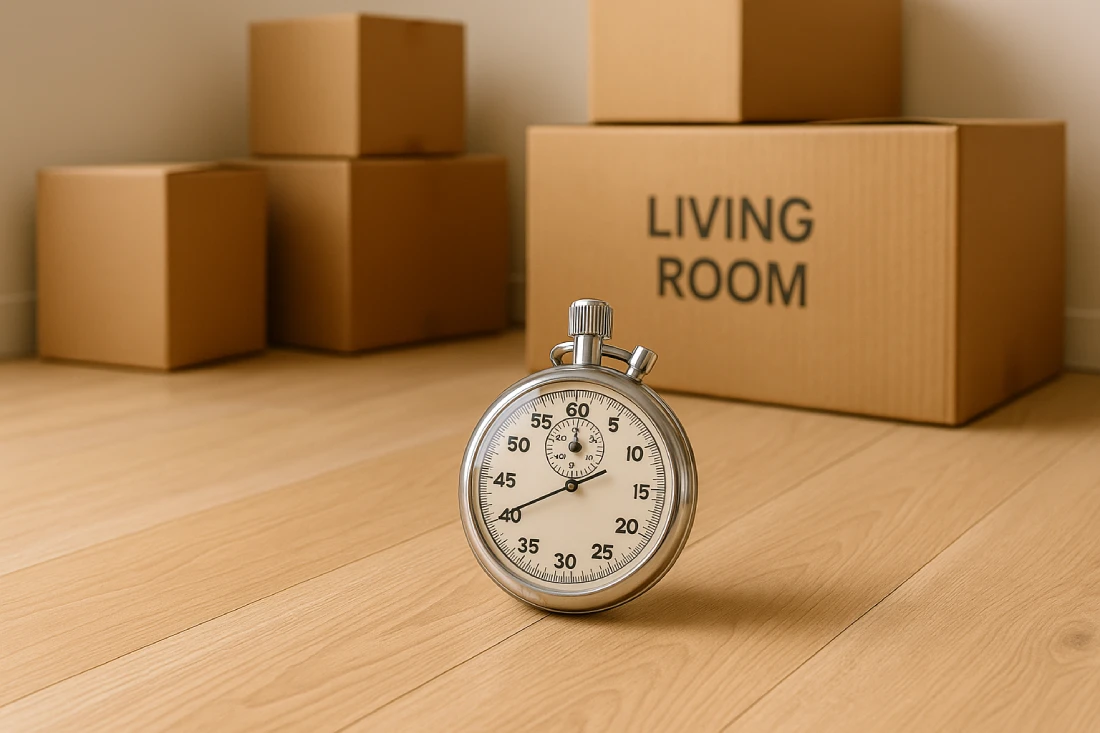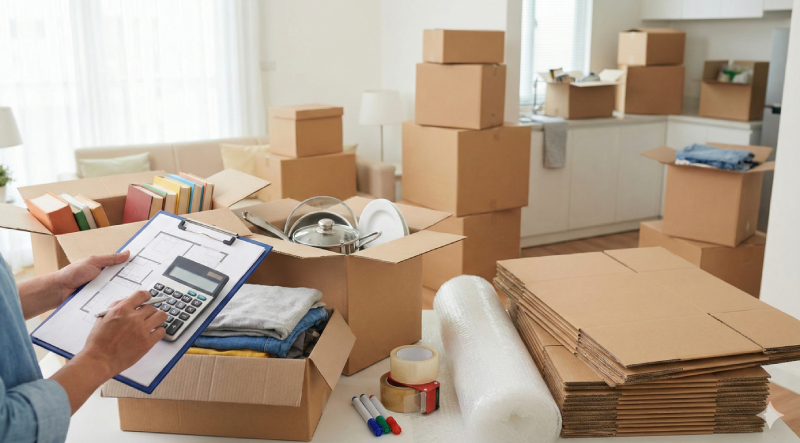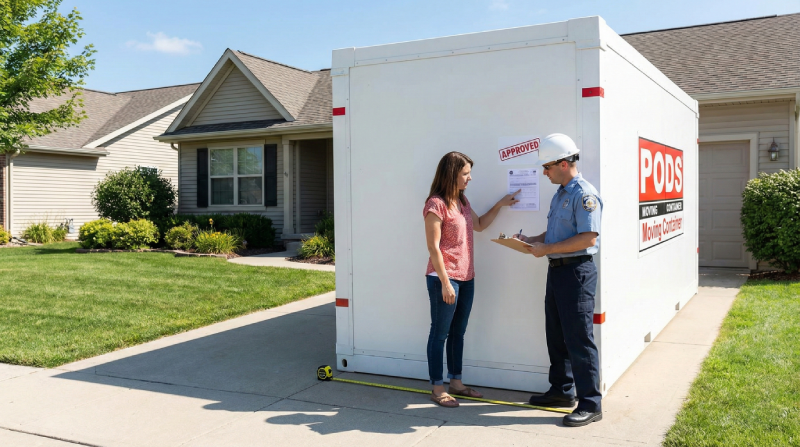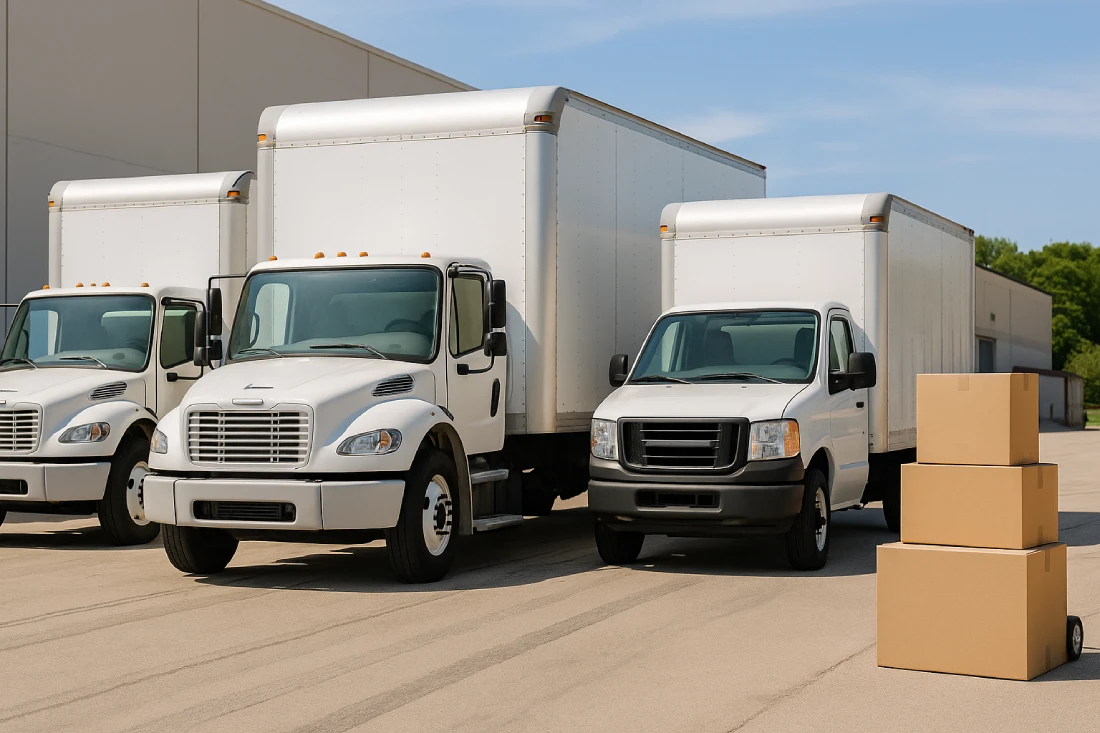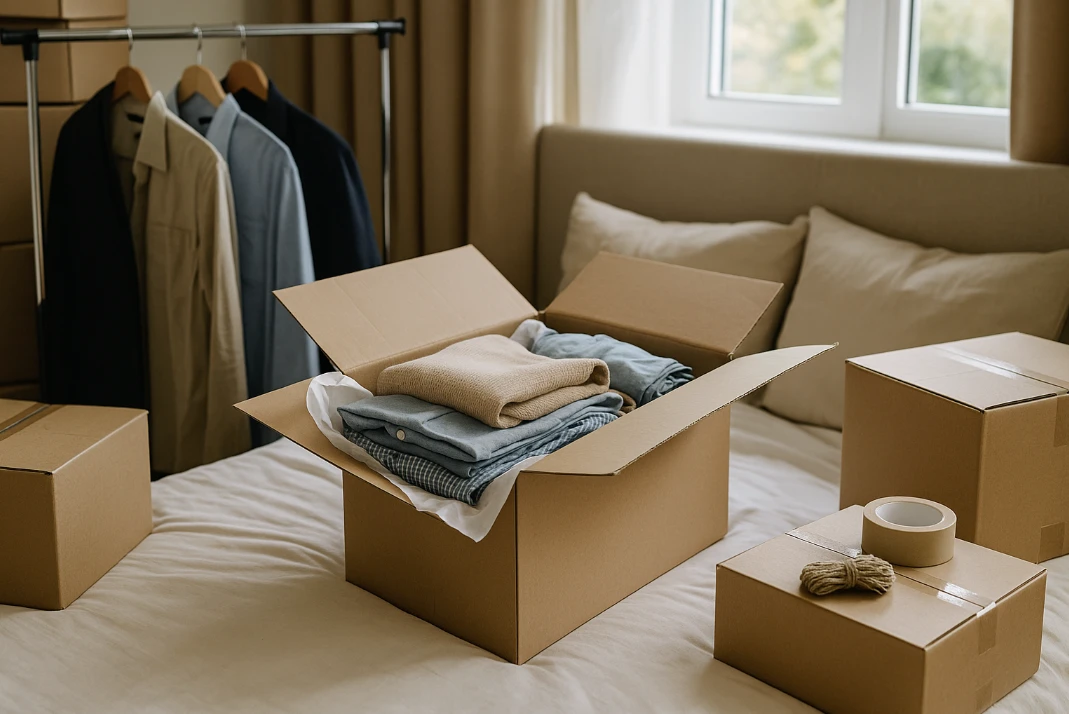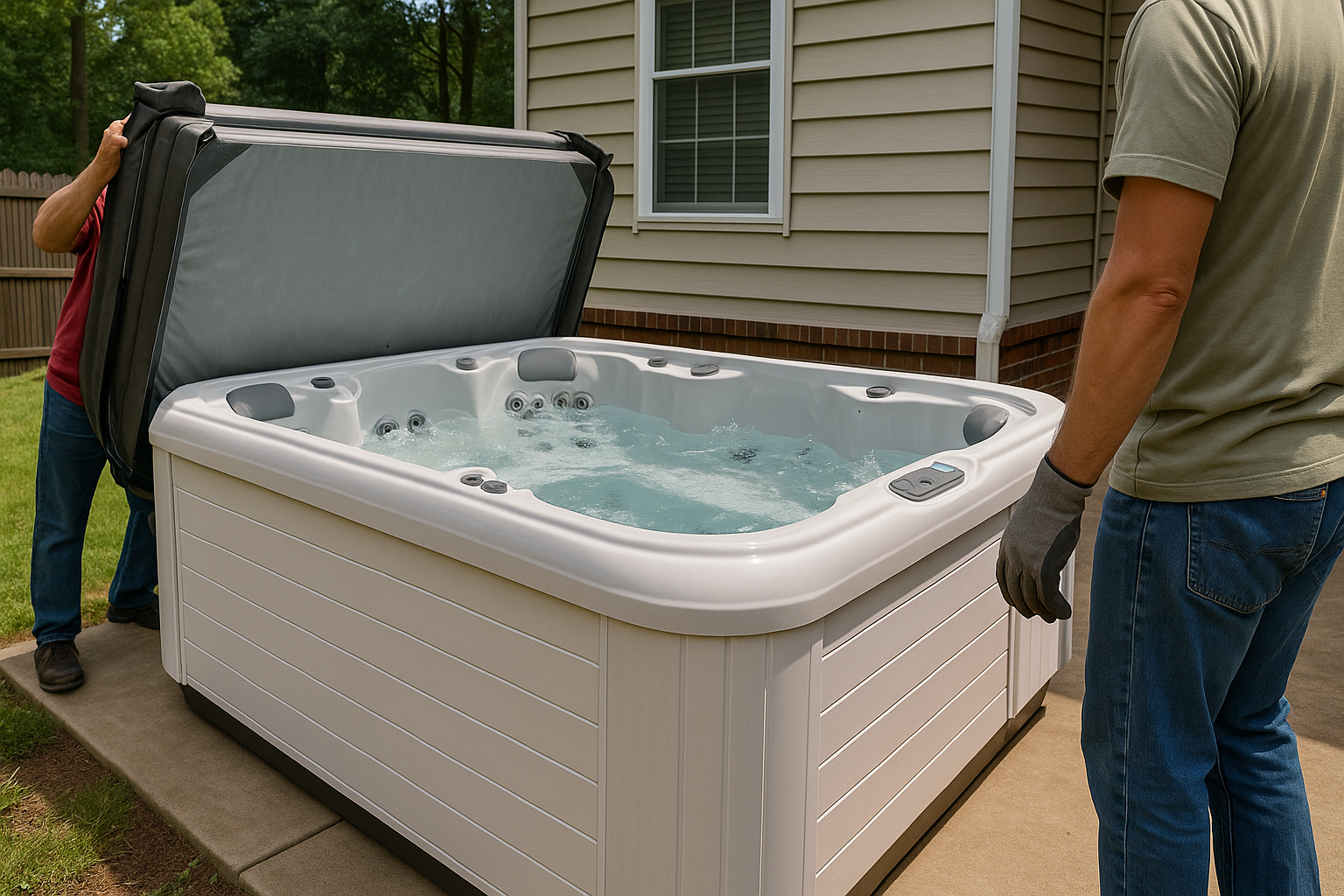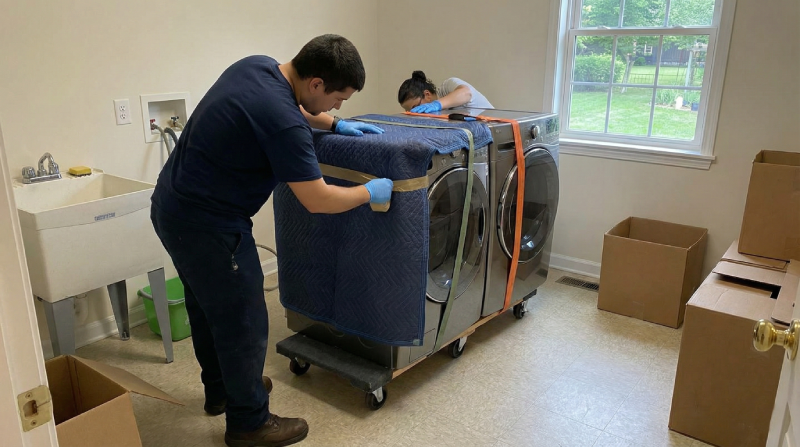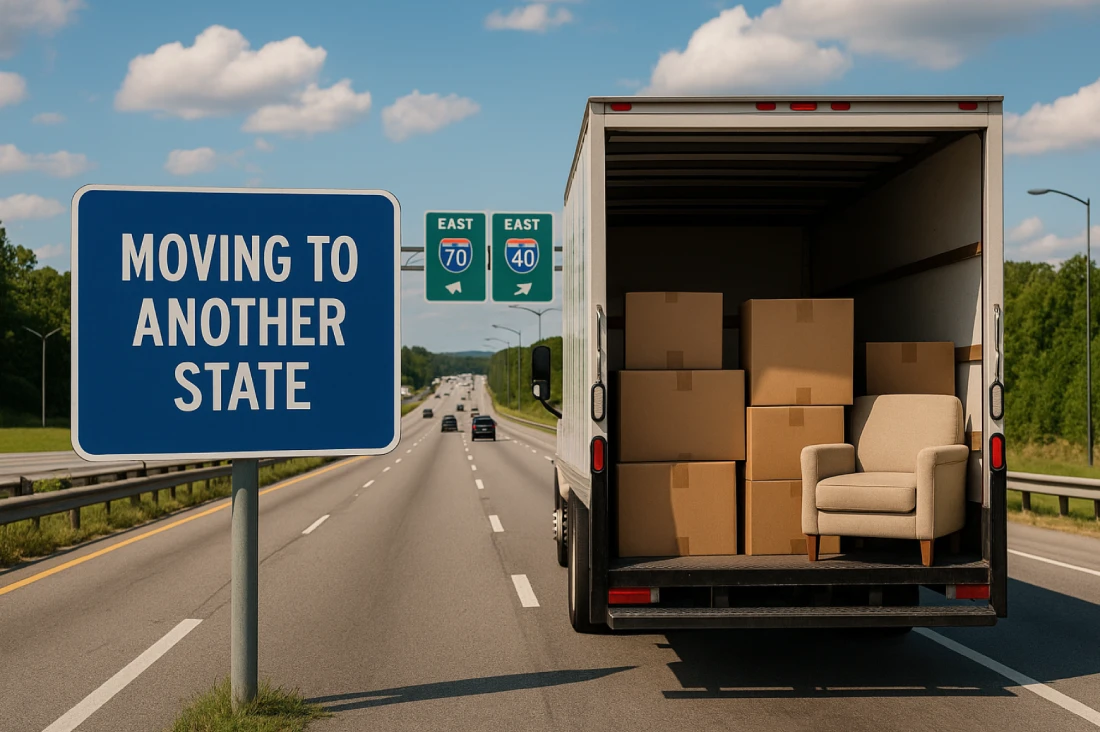Do movers pack for you? is a common question for first-time movers. Many moving companies offer packing services, but options and costs vary significantly between full-service movers and labor-only help. Your best packing service depends on your budget, timeline, and physical capabilities. Read on for a breakdown of what movers pack, pricing structures, time requirements, and strategies to maximize value for your move. Learn which items movers won't handle, how the professional packing process works, and effective ways to combine DIY efforts with professional assistance for cost savings and convenience.
Do Movers Pack for You?
The type of packing assistance available depends on which moving company you hire. Professional movers generally fall into two distinct categories:
Full-service movers
- Pack everything from kitchen dishes to bedroom linens.
- Provide all boxes, bubble wrap, and packing materials.
- Handle your entire move from start to finish.
Note: Packing services typically cost extra beyond base moving rates
Labor-only movers
- Arrive ready to load and unload your pre-packed boxes and furniture.
- Don't provide packing services.
- Focus solely on the heavy-lifting aspects.
Understanding this distinction between service types is important when determining your budget and expectations for a move. While full-service packing offers complete convenience, it makes the most sense in specific situations:
- When facing tight relocation deadlines.
- When coordinating a senior parent's move.
- When you don't have time to pack fragile items properly.
However, this convenience comes with a significant cost. In addition to your standard moving costs, expect to pay an additional $700-$1,300+ for packing a typical two- to three-bedroom home. If you're seeking a balance between cost and convenience, labor-only services like Moving Muscle offer an appealing middle ground.
With this approach, you maintain control over your belongings and packing timeline while professional movers handle only the physically demanding aspects that risk injury or property damage.
Key Benefits of Labor-Only Services
- Significant savings: typically 45% less than full-service options.
- Flexibility: In moves where packing is gradual.
- Transparent Pricing: You only pay for the muscle you need.
- No Mark-Ups: Packing materials or unnecessary services aren't charged at high prices.
What Movers Will and Won't Pack for You
Knowing what professional movers will and won't pack for you helps when planning your relocation. While movers can safely pack most household items, specific restrictions exist for safety and liability reasons. This breakdown will help you prepare and avoid unexpected issues on moving day.
Standard Items Professional Movers Pack
When hiring packing services, professional movers handle virtually all household belongings with specialized care. Their expertise extends to a comprehensive range of items:
- Furniture and large pieces: Carefully pad-wrapped to prevent scratches and damage.
- Kitchen essentials: Using specialized dish packs, everything from everyday pots to delicate fine china.
- Clothing and textiles: Efficiently packed with wardrobe boxes for hanging clothes to prevent wrinkles.
- Books and office supplies: Properly distributed in smaller boxes to manage weight.
- Electronics and entertainment: Secured with anti-static materials when properly prepared.
- Artwork and mirrors: Protected with custom crating for valuable or fragile pieces.
Items Moving Companies Won't Pack
Moving companies maintain strict policies about items they refuse to handle for safety and liability reasons. Being aware of these restrictions helps prevent delays and complications on moving day:
- Hazardous materials: Paint, chemicals, propane tanks, ammunition, and batteries.
- Cleaning supplies: Products containing bleach, ammonia, or other harsh chemicals.
- Perishable items: Food that may spoil during transport, especially during summer.
- Plants and greenery: Particularly problematic for long-distance relocations.
- Opened liquids: Any containers that could leak or spill during transport.
- High-value personal items: Cash, jewelry, important documents, medications, and irreplaceable heirlooms.
Preparation Tips for Your Assisted Move
Proper preparation before your moving crew arrives ensures a smooth, efficient packing experience without last-minute complications:
- Proper disposal of hazardous materials: Visit local household hazardous waste facilities at least one week before moving,
- Prepare appliances in advance: Clean and defrost refrigerators 24-48 hours before moving day, ensuring they're completely dry.
- Create a dedicated "Do Not Pack" zone: Consolidate important documents, medications, and valuables in a clearly marked area.
- Plan for perishables: Use or donate perishable foods before moving day arrives.
- Arrange transportation for plants: Make space in your vehicle for any plants you wish to keep.
- Pre-sort restricted items: Having these items already separated saves time and prevents awkward discussions when packers arrive.
- Pack books correctly: Learn how to pack books correctly to avoid damage, injuries, and other complications from improperly packed books.
What Types of Packing Services Do Movers Offer?
Professional movers offer varying levels of packing assistance to accommodate different needs, timelines, and budgets. Here's a comprehensive breakdown of the most common packing services you'll encounter:
Full-Service Packing Options
Full-service packing represents the most comprehensive moving solution available. Professional crews handle everything from start to finish using their materials and expertise. Here's what you can expect from full-service packing:
- Complete home packing: Teams systematically work room-by-room, ensuring every item is protected correctly.
- Professional materials provided: Boxes, packing paper, bubble wrap, and specialty containers for fragile items.
- Furniture preparation: Includes disassembly of beds, tables, and other large pieces requiring breakdown.
- Protective measures: Mattress bags, furniture padding, and floor protection throughout your home.
- Detailed inventory: Creation of comprehensive lists documenting all packed items for insurance purposes.
Full-service packing typically requires 1-2 days for average homes and adds $1,000-$2,000 to your moving costs, depending on home size and contents.
Partial Packing Services
Many homeowners find value in selecting specific areas for professional packing while handling simpler items themselves. This balanced approach offers significant advantages for local moves:
- Customized room selection: Choose only the spaces requiring professional attention, such as kitchens or offices
- Priority-based packing: Focus professional services on fragile items while tackling clothes and books yourself.
- Significant cost savings: Reduce expenses by 40-60% compared to full packing services.
- Time flexibility: Pack non-urgent areas at your own pace while leaving technical packing to professionals.
- Budget control: Select exactly which areas need expert attention based on your priorities.
This hybrid approach has become increasingly popular among young professionals and tech workers who value quality and affordability.
Specialty and Fragile-Only Packing
For homeowners with valuable collections or delicate items, specialty packing services provide targeted protection for your most precious possessions:
- High-value item protection: Custom solutions for fine art, antiques, chandeliers, and family heirlooms.
- Electronics safeguarding: Special techniques for packing computers, entertainment systems, and smart home equipment.
- Musical instrument handling: Expert packing for pianos, guitars, and other sensitive instruments.
- Custom crating options: Wood crates built to specification for extremely fragile or valuable pieces.
- Specialty materials: Industry-specific packing supplies not typically available to consumers.
This targeted service works well when combined with labor-only moving services. You pack everyday items, professionals handle the challenging pieces, and labor-only services provide the loading muscle at a fraction of full-service costs.
How Much Do Movers Charge to Pack Boxes and Rooms?
Knowing the actual cost of professional packing services can help you make informed decisions about your upcoming move. This section breaks down typical pricing structures, explores time requirements based on home size, and identifies key factors influencing your final bill.
Price Factors
Packing costs depend mainly on home size, item types, and accessibility. Expect to pay more for homes with numerous fragile items or difficult access (like third-floor walkups). Due to high demand, summer moves cost 15-20% more. Parking restrictions and the distance from the truck to the door also affect pricing.
Hourly Rates
Professional packing services typically cost $140/hour for a two-person crew ($100-$180 range depending on company and season). Most jobs require 2-3 packers. Full-service companies charge $85-$170/hour when bundling packing with moving, while labor-only services start at around $75/hour for loading pre-packed items.
Materials Costs
When included with services, standard boxes cost $3-$7 each, wardrobe boxes $10-$15, and dish packs $5-$10. Packing paper costs $30-$40 per bundle, and bubble wrap costs $20-$30 per roll. You can save money by sourcing free boxes from U-Haul, Home Depot, or grocery stores.
Time Requirements
Packing times vary by home size: one-bedroom apartments (3-4 hours with two packers), two-bedroom homes (4-6 hours), three-bedroom houses (6-8 hours), and four+ bedroom homes (8-10 hours or multiple days). Extensive collections or poor organization will extend these timeframes.
How Does Packing with Movers Work?
Before packing day, professional movers will conduct an assessment, deliver materials, and establish a workflow. Below, we break down each step of the packing process, from initial booking through final coordination, so you'll know exactly what to expect when working with professional packers.
In-Home or Virtual Assessment
The packing process begins with an assessment where moving companies evaluate your belongings and provide estimates. Many movers now offer virtual assessments via video call, saving you time while maintaining accuracy. During assessment, representatives identify special handling items, note access challenges, and calculate material needs.
Materials Delivery and Staging
Full-service packers typically deliver materials the day before or the morning of packing. They'll stage boxes by room, set up packing stations, and protect floors with runners. This preparation phase ensures efficient packing without damaging your home.
Packing Day: Labeling and Protection
Professional packers work systematically, usually completing one room before moving to the next. They wrap fragile items individually, use dividers in boxes, and clearly label each box with contents and destination room. Quality movers maintain detailed inventories for insurance purposes.
Loading Coordination and Walkthrough
Once packing is complete, the crew coordinates with loaders (often the same team) to move boxes to the truck efficiently. They'll conduct a final walkthrough to ensure nothing is forgotten and document any pre-existing damage.
Unpacking Options
Many full-service movers offer unpacking services at your destination, which adds another $500-$1,000 to costs. Labor-only services typically don't include unpacking, but you can book additional hours for help arranging furniture and placing boxes in designated rooms.
Is It Worth It to Have Movers Pack for You?
Most movers find better value in hybrid approaches. Packing yourself over several weeks and hiring labor-only movers saves 45% or more than full-service options. This strategy works especially well for local moves where you control the timeline. Young families, renters, and budget-conscious movers typically have more time than money, making DIY packing the wise choice.
However, the following cases illustrate when paying packers can be more beneficial from a financial standpoint:
- Busy professionals billing $100+/hour will save by paying someone to pack for them.
- Seniors or those with physical conditions who can risk bodily injury.
- Businesses or individuals working on tight deadlines who need to move fast.
Moving Muscle's labor-only service offers a balance between DIY and full-service moving. This allows you to pack at your own pace to maintain control and save money while professionals handle the physically demanding and risky loading process. DIY packing can save you up to $1,000 for 20 work hours ($50/hour tax-free), while moving help offsets injury risks.
Do Movers Provide Boxes and Supplies?
Full-service moving companies in the US typically include all necessary packing materials when you purchase their packing services. While convenient, these supplies come with significant price markups that impact your overall moving budget.
Professional Packing Materials: Convenience vs. Cost
When evaluating the cost of packing materials from full-service movers, consider these pricing factors:
- Premium pricing structure: Expect to pay 50-100% more for boxes, tape, and bubble wrap compared to retail prices.
- Convenience premium: The higher cost includes delivery and precise quantity estimation.
- No opt-out options: Materials are typically bundled into the service package.
- Quality assurance: Professional-grade materials designed specifically for moving.
- Environmental consideration: New materials create more waste than sourcing used boxes.
Budget-Friendly Packing Supply Options
Labor-only movers like Moving Muscle provide loading services without including packing supplies, giving you complete control over material costs. Here are excellent sources for affordable moving supplies in most US locations:
- Local grocery stores: Ask specifically for sturdy apple and liquor boxes, which offer excellent durability.
- Online community platforms: Check Craigslist's free section and Facebook Marketplace for recently moved residents giving away boxes.
- U-Haul's box exchange program: Access gently used boxes at significant discounts or no cost.
- Office building connections: Businesses upgrading equipment often discard premium-quality packaging.
- Home improvement retailers: Home Depot and Lowe's offer reasonably priced moving kits with military or truck rental discounts.
Movers who do most of their packing save up to $200-$400 on packing supplies by sourcing materials independently. Many families then reinvest these savings into professional labor for safe, efficient loading, maximizing the budget, and ensuring moving safety.
How to Save Money and Stay in Control of Your Move
The moving industry offers a spectrum of packing solutions that cater to different needs and budgets. While full-service companies handle everything from boxing up your kitchen to transporting furniture, labor-only moving services present a compelling middle ground.
By taking charge of your packing timeline and truck rental while bringing in professionals specifically for the physically demanding loading and unloading phases, you can maintain greater oversight of your possessions while reducing overall costs by 40-45%. This hybrid approach preserves your budget and gives you the flexibility to pack methodically without rushing to meet a mover's schedule.
The process is simple: book a crew with transparent hourly pricing ($75-100/hour), choose your start time, and pay only for time used. These professionals handle the heavy lifting while you oversee your possessions.
For maximum value without compromising safety, pack non-fragiles yourself, hire specialty packers only for valuable items, declutter before moving, source free boxes, and schedule during off-peak times. This balanced approach protects both your budget and your back.
Learn more about how labor-only movers can transform your moving experience. Explore our detailed guides to find the perfect balance between DIY savings and professional assistance for your next move.
FAQs
Is it worth it to have movers pack for you?
Worth it for time-strapped professionals, seniors, or last-minute moves where convenience outweighs cost. Most movers save significantly by packing themselves and hiring labor-only help for loading.
Will movers move items not in boxes?
Most movers require items to be boxed appropriately, except furniture and large appliances. Loose items risk damage and slow loading. Labor-only movers are generally more flexible, but proper packing is still recommended for protection.
Do movers bring boxes and supplies?
Full-service movers include materials with packing services at premium prices. Labor-only movers don't provide supplies, expecting you to have everything packed and ready for loading.
How much do movers charge to pack boxes?
Packing services and materials average $140 per hour for a two-person crew. Full home packing typically costs $700
Is packing and loading my Items worth it?
DIY packing can save you 40-45% on moving costs. It's worth it for those with budget constraints and flexible timelines. However, hiring professionals for truck loading is recommended to prevent injury and damage to heavy items. When deciding, consider your time value, physical capabilities, and move complexity.
Are movers responsible for damages?
Yes, licensed movers are legally responsible for damage to your belongings during a move. However, the amount of compensation you receive depends on the liability coverage you selected in your contract. Most people unknowingly choose minimal "Released Value Protection" that pays only $0.60 per pound, while "Full Value Protection" provides comprehensive coverage for repair, replacement, or current market value. Learn more about mover liability and how to protect your belongings.

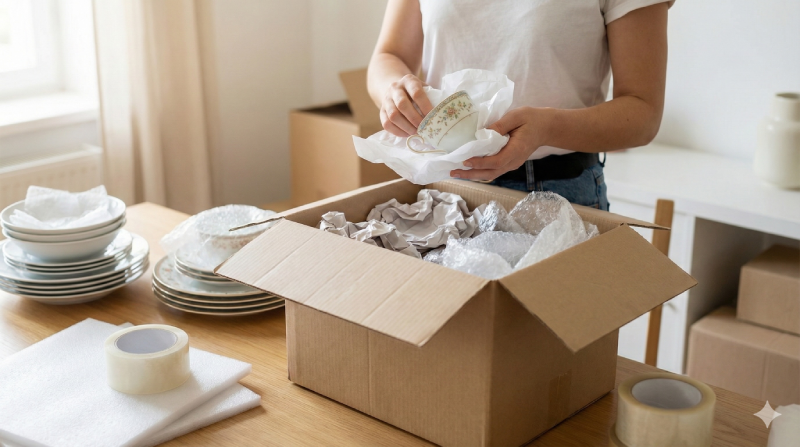

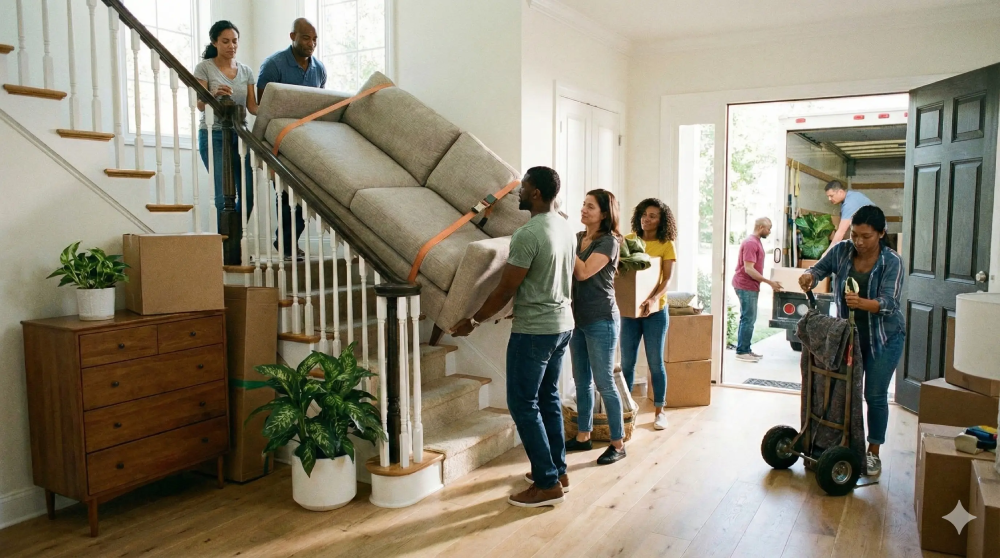


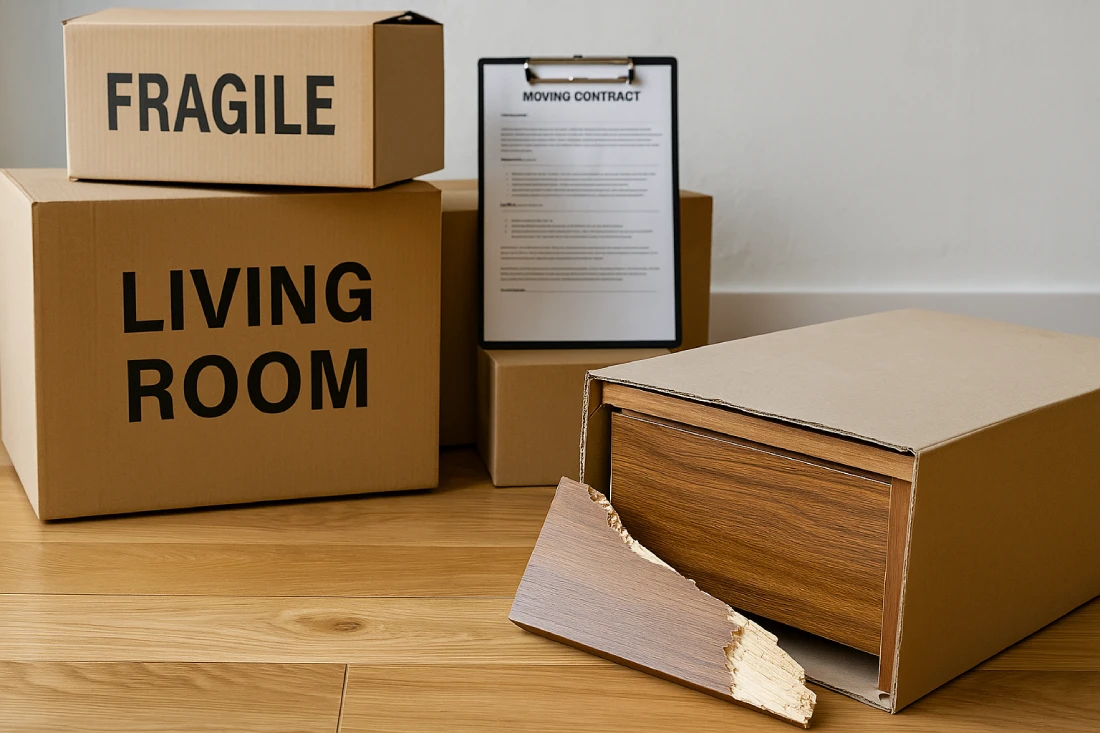


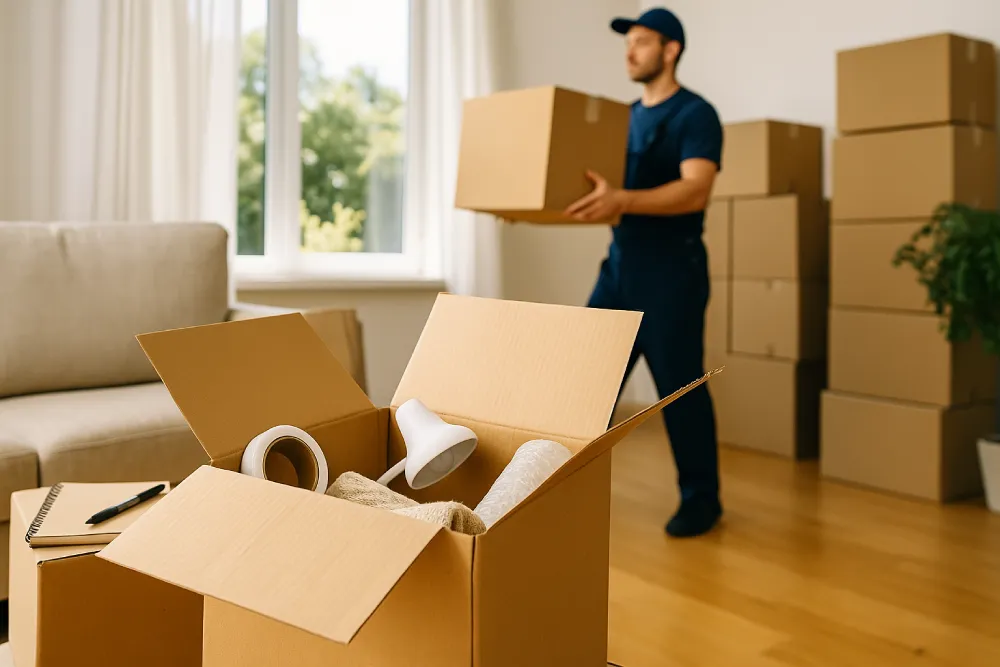
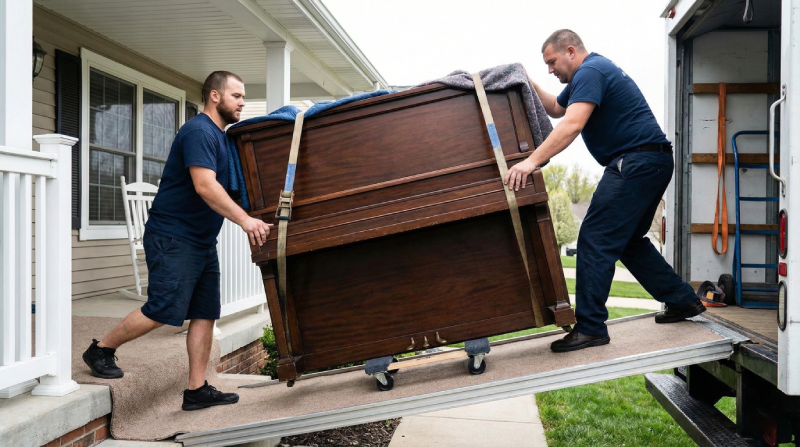





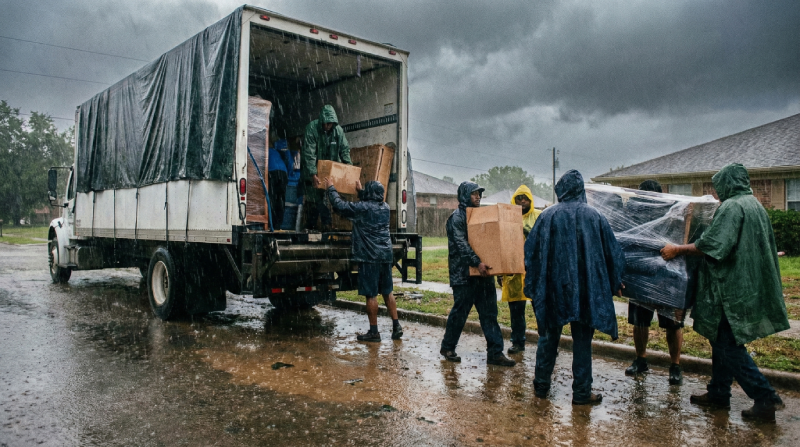


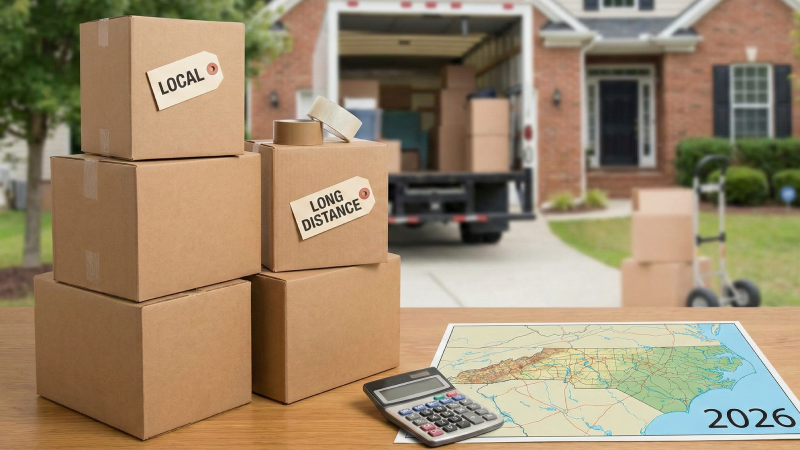
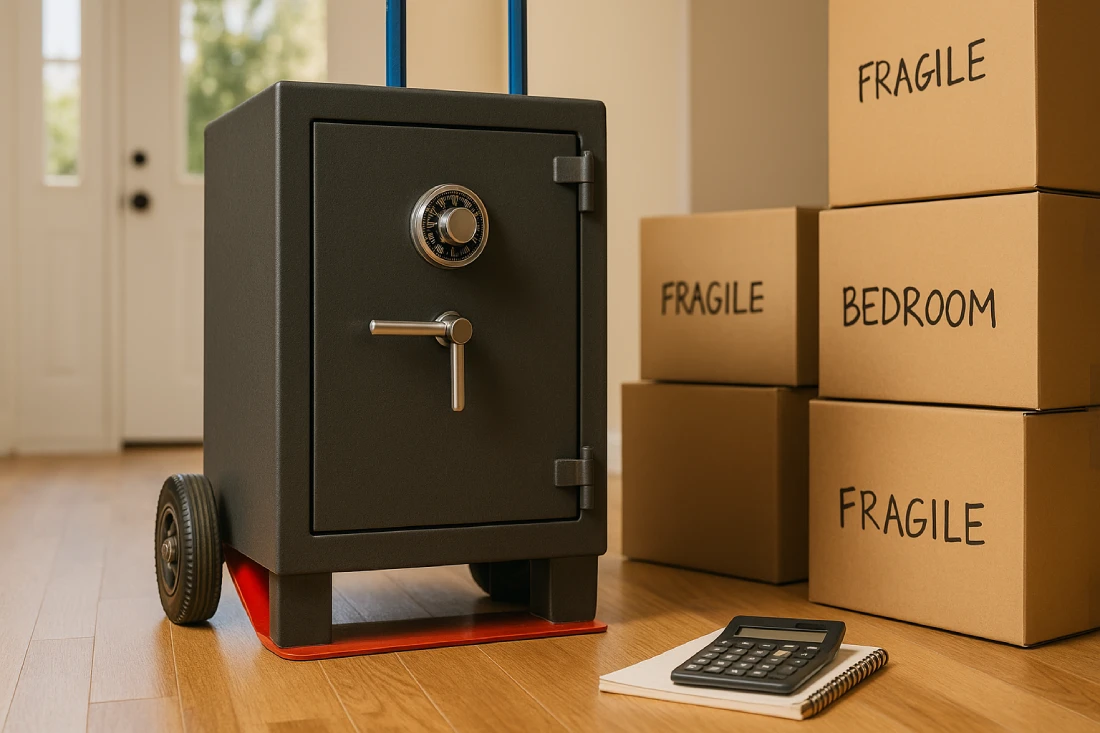
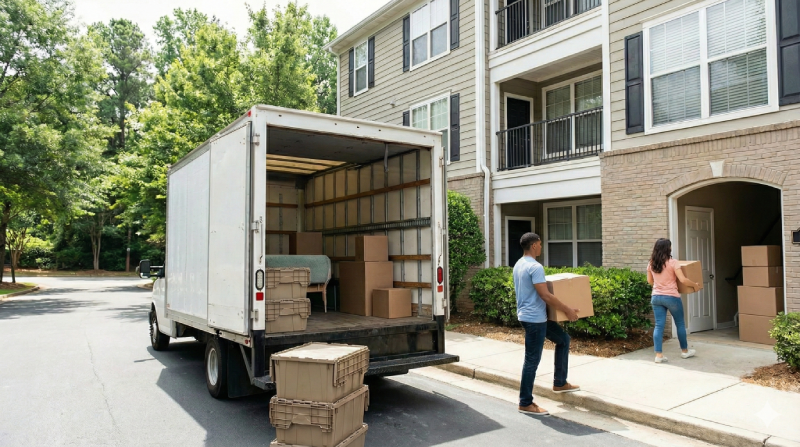
.webp)



